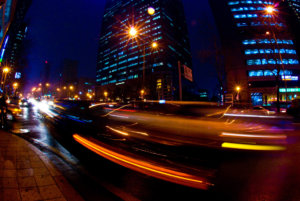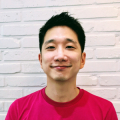You have no items in your cart. Want to get some nice things?
Go shopping
I will not serve that in which I no longer believe, whether it call itself my home, my fatherland, or my church: and I will try to express myself in some mode of life or art as freely as I can and as wholly as I can, using for my defence the only arms I allow myself to use—silence, exile and cunning.—A Portrait of the Artist as a Young Man by James Joyce
1.Bangkok
I have a theory that Joyce meant “exile” not from Ireland but from the self. That if you want to write, you have to exile yourself from your “self” and learn to follow the language no matter how far it gets from the lie that is you to reach the truth that is not you.
I first read A Portrait of the Artist as a Young Man as a young man. I was eighteen and a senior at International School Bangkok, Thailand. I went to school by day and swam in the lagoon-shaped pool at our apartment in the afternoons. There were islands in the pool with palm trees dipping their spiky leaves in the water. I would lounge by the pool after a few laps and read Penguin Classics. I thought a lot about my “self.” I thought about it until my brain hurt. Truly no other generation that existed thought more about the self than ours did, not even the people of the eighteenth century, who invented the self. We invented reality TV, we enabled President Donald Trump, we created the great triad of “self” products—Facebook, Twitter, and Instagram.
I swam in that pool, a beautiful (fake) river in a beautiful (fake) jungle, all before my Korean law degree, my days in the Korean Army, my roaring twenties, meeting the man who would become my husband, publishing my books, all the things that I would later think of when I thought about my “self.” When I think back on when I was my purest self, it’s that moment in the Bangkok sun where I had more or less finished growing up but was relatively unspoiled and undistorted by bad decisions, bad luck, and bad boyfriends, the last moment of my life when I could say I was very much me. Everything that came after that has been a deconstruction of that prelapsarian self, at best a partial restoration, at worst a sledgehammer against the soul. In any case, my twenty years since leaving Bangkok has been twenty years of exile from the self.
Joyce was Irish and wrote in his colonizer’s language of English. My father, a Korean who loves the English language, made sure it would always be my best subject at school. South Korea is an American colony; we relinquished operational command authority over our own military to the US in 1950. Despite the fact that I first learned my English at a British private school in colonial Hong Kong, my English remains stubbornly American.
The author and translator Hayun Jung, who also grew up in Bangkok, once told me that for people like us who are raised internationally (as opposed to immigrants, who deal with much greater pressures regarding assimilation and tend to have a different attitude toward language), the English language itself is a refuge from the world that surrounds us. She describes in a personal essay about how the first thing she did after taking care of a traumatic family situation was to write about it in her diary. I can’t believe what just happened. The act of writing, especially in a foreign language, is an act of seeking refuge from the self. An act of distancing, of becoming someone else. Or of being somewhere else.
2.Literary Translation
I got into literary translation because I thought it would help my writing. I had a vague idea that translation would allow me to become an informed connoisseur of literary form and function, teach me discipline, and confer upon my work a patina of writerly legitimacy. After two books and a slew of publications, I’m somewhat at a loss as to say whether I’ve accomplished any of that. Most likely I’ve been too thick-headed and rushed to really let the lessons sink in; if anything, I’m just exhausted, and I’ve stopped saying yes to invitations for lecturing about literary translation because I keep getting notes about how I’m bumming out the audience. My literary agency has also suggested I use future publishing opportunities to establish my public identity as a writer more than as a translator. But writers and translators themselves do not make a great distinction between the two professions. In Korea, I’ve received nothing but overwhelming respect from writers as a translator, an unspoken assurance of being equals. The reading public thinks differently (which is what my agency meant, to be fair) but this perception seems to be changing as well.
Perhaps this is because like writing, the act of translation is an act of exile. When you translate, you put aside who you are and inhabit someone else. Someone else’s language, someone else’s voice. This “someone else” is not necessarily the source author. Writers are as “exiled” from their own selves as a translator is. “I wrote this!” No, you didn’t. Your language wrote it through you.
I often joke that while Deborah Smith translating The Vegetarian turned Deborah into a vegetarian, my own debut translation The Court Dancer did not turn me into a court dancer. But I did throw myself at my author Kyung-Sook Shin’s feet and followed her every footstep on the page because I so wanted to crack her code, her ability to hypnotize the reader using the simplest-seeming language. I wanted her language to use me, to find me worthy of its use. I didn’t want to be me at all. I wanted to be an English version of her. If I could only exile myself from myself, I just might end up in the land of her language . . .
It’s not that translation resembles writing. It’s more that in these postmodern times, writing seems to resemble translation.
3. Why I Live in Seoul
For the past twenty years since I left Bangkok, I’ve felt I left a fragment of my soul in that city, and reunited with it whenever I make it back. I walk down its streets that shine platinum in the sun, feeling happy because of the sunlight that hums on my skin. I feel whole, more whole than my thirty years of living in Korea makes me feel when I’m walking down the streets of Seoul. But perhaps that’s why I live in Seoul and not Bangkok. In Bangkok, I’m at home.
In Seoul, I’m in exile.

About Anton Hur
Anton Hur was born in Stockholm and currently resides in Seoul. His writing and translations have appeared in Words Without Borders, Asymptote Journal, Slice Magazine and others. He is the recipient of a PEN Translates award from English PEN, a Daesan Foundation literary translation grant, and multiple LTI Korea translation grants.




